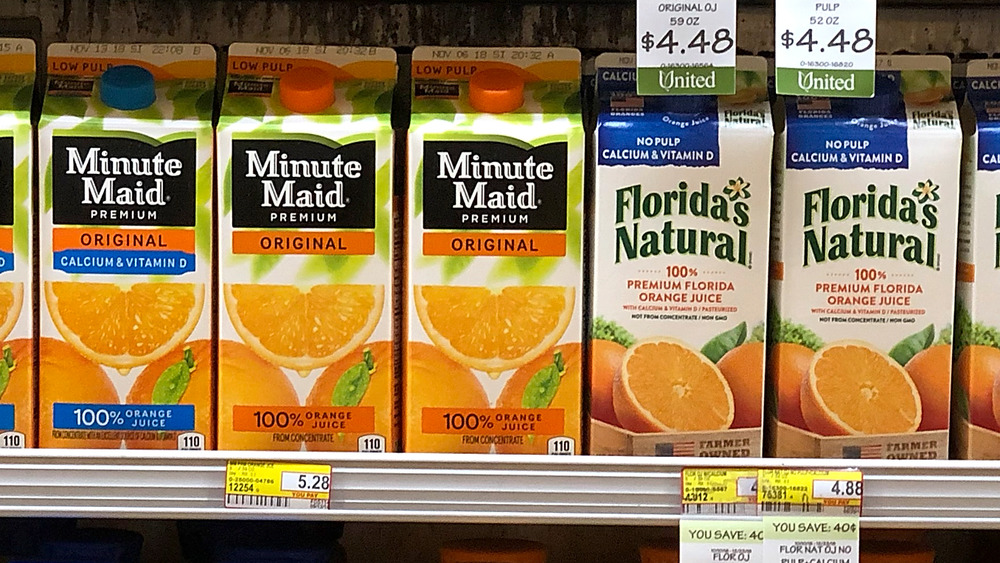Read This Before Drinking Unpasteurized Orange Juice
The only thing that pairs better with breakfast than a cup of hot coffee is a glass of tangy, citrusy orange juice. Whether you drink it plain or mixed with champagne (mimosas, anyone?), OJ has been a staple in many Americans' mornings ever since it was invented back in the 1930s (via Time). Take a look at the juice section in the grocery store today, and you'll find a large variety of types of orange juice. There are some with pulp and some without. There are some that are fortified with calcium and some that are additionally flavored with mango and pineapple.
Then, there are some that are pasteurized and some that are unpasteurized. While you might only think of pasteurization as something that is done to milk, it's also done to juices, including orange juice. Some people believe that "raw juice" (i.e., unpasteurized juice) is healthier than its pasteurized counterpart. However, here's why you might want to think twice before drinking it.
You risk getting a food-borne illness
To understand the risk of unpasteurized juice, you first have to understand what pasteurization is. Essentially, it's a process that heats liquid to a high temperature to kill off any potentially damaging bacteria, as Self explains. So how dangerous is it to drink unpasteurized orange juice? Pretty dangerous, according to researchers and the U.S. Food and Drug Administration (FDA). The Canadians say so, too; Healthlink BC reports that unpasteurized juice is at a much higher risk of containing harmful bacteria like E.coli, listeria, and salmonella that cause food-borne illnesses. These come with unpleasant side effects, like diarrhea, kidney or liver damage, and even death.
"The safety benefits exceed the potential reduction in nutrient content," Leslie D. Bourquin, Ph.D., a professor and food safety specialist at Michigan State University, told Self. The FDA agrees, adding that it's best to avoid any unpasteurized juice. Any juice that has not undergone the pasteurization process is required by law to be marked with a warning label.

